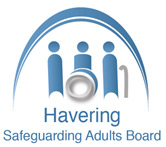Neglect
Neglect is the failure of any person who has responsibility for the charge, care or custody of an adult to provide the amount and type of care that a reasonable person would be expected to provide.
The Social Care Institute of Excellence (SCIE) list the following types of neglect:
- Failure to provide or allow access to food, shelter, clothing, heating, stimulation and activity, personal or medical care
- Providing care in a way that the person dislikes
- Failure to administer medication as prescribed
- Refusal of access to visitors
- Not taking account of individuals’ cultural, religious or ethnic needs
- Not taking account of educational, social and recreational needs
- Ignoring or isolating the person
- Preventing the person from making their own decisions
- Preventing access to glasses, hearing aids, dentures, etc.
- Failure to ensure privacy and dignity
Neglect can be intentional or unintentional. Intentional neglect such as withholding meals may constitute ‘wilful neglect’ and is a criminal act punishable under law (Mental Capacity Act 2005 Section 44).
Possible signs of neglect
- Poor environment – dirty or unhygienic
- Poor physical condition and/or personal hygiene
- Pressure sores or ulcers
- Malnutrition or unexplained weight loss
- Untreated injuries and medical problems
- Inconsistent or reluctant contact with medical and social care organisations
- Accumulation of untaken medication
- Uncharacteristic failure to engage in social interaction
- Inappropriate or inadequate clothing
- Over-sedation
Adults with care and support needs or who are ‘at risk’ may rely on others to facilitate their attendance at appointments. In some cases, when an adult at risk has cancelled or failed to attend an appointment, it is the carer that has failed to bring them. Maybe the patient has learning difficulties, or lacks the capacity to make a decision about attending the appointment or care home staff have failed to bring the patient to the appointment. Context and patterns are crucial. Watch a video here to see why it is important to be aware of missed appointments.
https://vimeo.com/user21885323/review/261475016/74de9dc0e8
Did Not attend-7 minute briefing
Self Neglect
The Social Care Institute for Excellence (SCIE) have published a General Briefing on Self Neglect , a Briefing for Managers and a Briefing for Practitioners.
They list types of self neglect as:
- Lack of self-care to an extent that it threatens personal health and safety
- Neglecting to care for one’s personal hygiene, health or surroundings
- Inability to avoid self-harm
- Failure to seek help or access services to meet health and social care needs
- Inability or unwillingness to manage one’s personal affairs
Indicators of Self Neglect include
- Very poor personal hygiene
- Unkempt appearance
- Lack of essential food, clothing or shelter
- Malnutrition and/or dehydration
- Living in squalid or unsanitary conditions
- Neglecting household maintenance
- Hoarding
- Collecting a large number of animals in inappropriate conditions
- Non-compliance with health or care services
- Inability or unwillingness to take medication or treat illness or injury
If you are concerned about an adult who is suffering from neglect
Adult Social Services Safeguarding Adults Team
Telephone: 01708 433550
Fax: 01708 432497
Email: safeguarding_adults_team@havering.gov.uk
